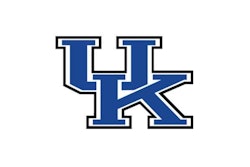Copyright 2018 Gannett Company, Inc.
All Rights Reserved
USA TODAY
In April, Ohio State football coach Urban Meyer stood behind a lectern in Columbus, Ohio, and gave a eulogy about his mentor, Earle Bruce, the former Buckeyes coach who had died five days earlier at 87.
He spoke about the values Bruce taught at Ohio State.
Bruce "believed in clarity and honesty when he spoke to you," Meyer said then. "Speak clearly and to the point. ... And the difference between right and wrong. There is no gray area. Zero. You follow rules. You do the right thing. Loyalty. Loyalty to your family, your former players and your coaches. And this can never be challenged."
Nearly four months later, Meyer's job is in jeopardy over those values: honesty, doing the right thing and perhaps too much loyalty to an assistant coach who happens to be Bruce's grandson and has been accused of domestic violence.
It's the latest scandal at Ohio State, one of several since Bruce was fired in 1987 amid a different sort of controversy. The question wasn't about cheating or lying, but whether it was fair to fire Bruce, who ran a clean, winning program but didn't win enough games or stroke enough egos to please boosters.
Athletics director Rick Bay quit his job in protest after the university president told him he wanted Bruce fired.
"I didn't feel it was warranted, and I felt it cast a bad light on Ohio State," Bay told USA TODAY last week. Bay said it "reflected poorly" on the university to fire Bruce for such reasons, in part because Ohio State was trying to overcome the perception it was "a football factory and nothing else."
A few days later, Bruce led the Buckeyes to a 23-20 victory at Michigan in his final game. Meyer remembers it well, having worked under Bruce that year as a 23-year-old graduate assistant coach.
But Ohio State hasn't been the same since, in ways large and small, coincidentally or not, sort of like a curse.
Bruce's grandson, Zach Smith, recently worked as an assistant coach on Meyer's staff and is a big reason for the latest mess. Questions about whether Meyer lied about and covered up his knowledge of Smith's alleged domestic violence have led to Meyer being put on administrative leave a month before the season opener.
On Friday, Meyer issued a statement saying he followed protocol but was not "completely accurate" when responding to questions about the allegations.
In the bigger picture, Bruce's firing unofficially marked the dawn of a more cutthroat era for Ohio State as increased TV revenue and coaches' pay kept raising the stakes for all big-time programs. A 6-4-1 record was no longer good enough, as it wasn't in Bruce's last season in Columbus. More pressure to win and protect the business led to more temptation to break rules, lie and cover up problems, fueling scandals at many schools, from Penn State to Baylor. At Ohio State, such scandals have dogged it the past 25 years under different coaches, including recent allegations that the university ignored sexual abuse complaints about a former doctor in the athletics department.
Gone are the days of the athletics director sacrificing his job for a coach who ran a reputable program but won only six games instead of 10. In their place came something else, with different standards, arguably starting with Bruce's firing in '87.
In 1979, Bruce replaced his own mentor at Ohio State, legendary Woody Hayes, who had won 205 games in 28 seasons but lost his temper in his final game when he punched an opposing player from Clemson.
Bruce did well by Hayes' winning standards, compiling a record of 81-26-1 in nine seasons. But before his firing, and before that Michigan game, he lost three in a row to Michigan State, Wisconsin and Iowa, all close games. The governor of Ohio suggested afterward that the gambling problems of quarterback Art Schlichter had something to do with his firing, but that was met with skepticism because Schlichter last played at Ohio State six years earlier.
Bay said Bruce's gruff personality didn't sell well enough with some, which might not have mattered if he had won 11 or 12 games a year instead of nine.
"There's nothing sinister in Earle's coaching career," Bay said. "He just wasn't a popular guy with some important people."
Bay thought Ohio State lost its way with these kind of values. He moved on to other jobs with the New York Yankees, Minnesota and San Diego State. Bruce later landed at Colorado State. Ohio State replaced him with John Cooper, who also ran a successful, esteemed program, compiling a 111-43 record overall but posting a 3-8 record in bowl games and a 2-10-1 record against Michigan.
After Cooper finished 8-4 in 2000, Ohio State fired him in a move that seemed to pay off in hindsight. The Buckeyes played at a higher level of success after that, highlighted by an undefeated season in 2002 and then a 73-8 record and a national championship in six seasons under Meyer. But there has been a cost.
Jim Tressel replaced Cooper and rang up a record of 106-22 in 10 seasons and became so larger than life on campus that Ohio State President Gordon Gee once said, "I'm just hoping he (the football coach) doesn't dismiss me."
It turned out to be more like the opposite. Under Tressel, star running back Maurice Clarett's bright promise disintegrated after a series of high-profile cases involving allegations of academic misconduct, special benefits and misleading investigators.
Then Tressel quit amid a different scandal in 2011. He had been accused by the NCAA of failing to "deport himself ... with honesty and integrity" for his role in essentially covering up a scandal involving players receiving improper benefits from a tattoo parlor.
And it wasn't just football for the Buckeyes. In men's basketball, two of Ohio State's previous three men's basketball coaches were fired after facing various NCAA rules violation allegations during their tenures.
And now, besides the Meyer case, Ohio State is facing allegations from former athletes that the university ignored reports of sexual abuse. More than 100 students reported firsthand accounts of sexual misconduct by the doctor, Richard Strauss, from 1979 to 1997, the university said in July.
Bay still calls it the best job he ever had, even as a former player from Michigan who currently lives in Ann Arbor.
"That was one that that I really loved," Bay said. "If the president hadn't fired Earle against our recommendation, I might still be there."
Read More of Today's AB Headlines
Subscribe to Our Daily E-Newsletter
Terms and Conditions Privacy Policy



































